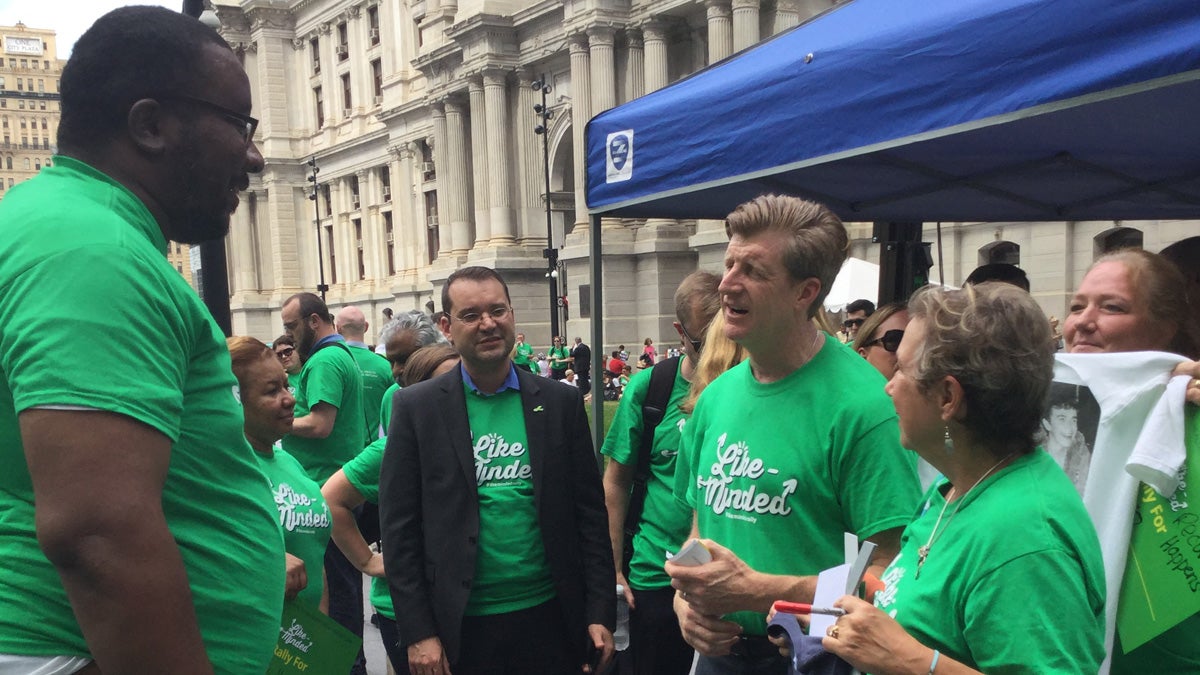Like-Minded rally calls for parity in treating health issues, substance abuse

Former Congressman Patrick Kennedy speaks during a Like Minded rally for mental health and substance-abuse reforms outside Philadelphia's City Hall Tuesday. (Kyrie Greenberg/ for NewsWorks)
Mental health and addiction treatment advocacy leaders addressed a crowd of more than 100 in Dilworth Park during a “Like-Minded” rally
The event was timed to take place during the Democratic National Convention events this week in Philadelphia.
Each speaker Tuesday represented different aspects of mental health and addiction care, but all called for changes in managing and funding these services.
Linda Rosenberg, CEO of the National Council for Behavioral Health, advocated Medicaid expansion as an effective way to pay for chronically underfunded behavioral health care and addiction services.
“It’s not enough for us, for Congress, to expect to be grateful for grants. We would never fight cancer or heart disease with a grant,” she said. “Why should care for mental illnesses and addictions be dependent upon your community or clinic getting a grant?”
Rosenberg shared the stage with former U.S. Rep. Patrick Kennedy, whose personal connection to mental illness and addiction spurred him to help pass the Mental Health Parity and Addiction Equity Act.
Enacted in 2008, the law mandates that insurers cover mental health and addiction care in the same way as physical illness. It was an expanded to include individual plans with Obamacare. Yet, Kennedy said, getting these services covered by insurers is still an uphill battle — and the discrimination is in the details.
“Which means that [insurers] require preauthorization in order to be admitted in to the emergency room for a mental health crisis — when you would never get preauthorization for any kind of physical health crisis,” he said. These medical-management practices still aren’t monitored in a comprehensive way, he explained, and “there are all kinds of impediments. That is our last frontier of ensuring equal coverage.”
He and his colleagues agree that the lack of preventive care has led to a public health crisis that also costs businesses. Depression accounts for 200 million missed days of work each year.
At the same time, overdose deaths from opioids are surpassing those from car accidents. But, he said, if we treated addiction in the same way as other medical issues, there would be progress.
WHYY is your source for fact-based, in-depth journalism and information. As a nonprofit organization, we rely on financial support from readers like you. Please give today.

